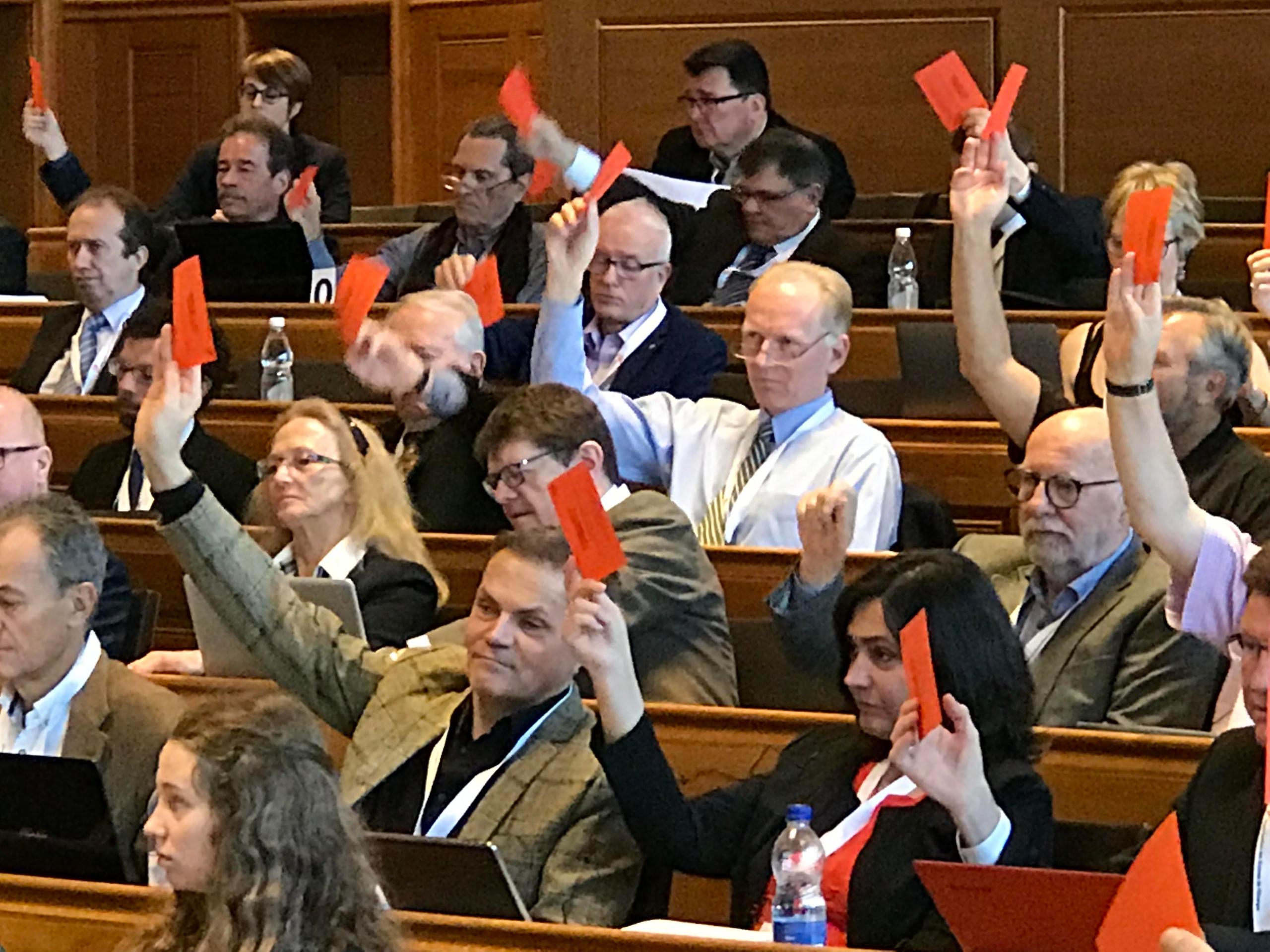Almost 60% of Swiss politicians receive threats

With parliamentary elections six months away, a survey shows that being a politician can be a risky profession. Almost 60% of Swiss politicians receive threats on a regular basis and over three-quarters are routinely insulted, with female politicians at greatest risk.
The surveyExternal link conducted by Swiss public television, RTS investigated the scale and severity of threats and insults received by parliamentarians after a recent report from Federal Office of Police showed that there were actually fewer reported threats than the previous year.
It found that only 20% of elected representatives don’t receive any insults or threats. Nearly 60% receive regular threats and some 78% face insults by mail, email, or on social media. The 113 survey participants included 75 men and 38 women.
The frequency varies but most respondents (38%) said that they face threats or insults between one and five times a year, while 32% face them one to five times a month. Only 10% receive fewer than ten a year and the same amount receive several per week.
The phenomenon appears to affect parliamentarians from more extreme parties on both the left and right. The majority of insults were related to their party (54%) or their political views (48%). Some respondents indicated that they often receive insults associated with stands on controversial or sensitive topics such as rights for asylum seekers.
Women are more likely to receive threats and insults, with fewer than 8% saying they have been unaffected. There are also stark differences between genders when it comes to the type of threats or insults, with nearly 88% of women suffering from sexist comments while only 5.5% of male colleagues are victims of such insults.
Respondents indicated insults include statements like: “Too sexy for politics”, “Frigid and good to put on a burqa”, or “blond poison”. Insults of a sexual nature, including pornography, are also more commonly received by female parliamentarians.
Seeking protection
While some brush off the threats as “part of politics”, some parliamentarians have required police protection and about a dozen have launched criminal proceedings. One parliamentarian recalled wearing a bulletproof vest at a speech before the parliamentary elections in 2015.
These cases involved, for example, a parliamentarian receiving a rape threat and another finding dead animals in his mailbox. According to the RTS story, leftwing Social Democrat Cédric Wermuth discovered a bullet in an envelope, which he believes was an attempt to intimidate him for his fight for rights of asylum seekers.
“It would be dishonest to say that these things don’t scare me, but it’s part of the routine of politics. In such situations, it’s most important to protect your family and prevent them from being directly affected,” he says.
At the end of 2017, Parliament set up an independent advisory unit for parliamentarians who are victims of sexual harassment or mobbing. Another advisory unit on cyber bullying was recently established.

In compliance with the JTI standards
More: SWI swissinfo.ch certified by the Journalism Trust Initiative



You can find an overview of ongoing debates with our journalists here. Please join us!
If you want to start a conversation about a topic raised in this article or want to report factual errors, email us at english@swissinfo.ch.